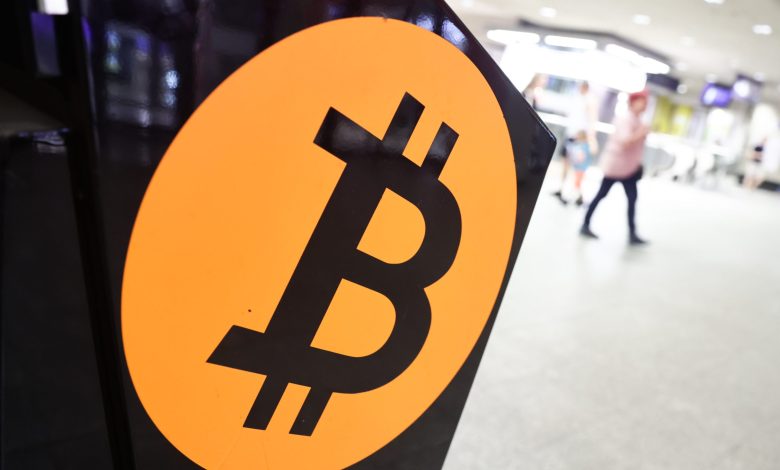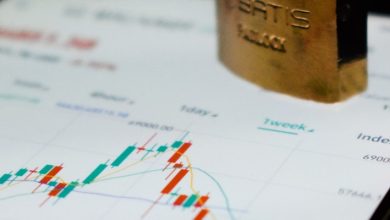How Geopolitical Events Influence Crypto Prices

- Understanding the relationship between geopolitical events and crypto prices
- The impact of political tensions on the volatility of cryptocurrencies
- How trade wars and sanctions can affect the value of digital assets
- Exploring the role of government regulations in shaping the crypto market
- Case studies: Historical examples of geopolitical events shaping crypto prices
- Strategies for investors to navigate the unpredictable nature of geopolitics in the crypto space
Understanding the relationship between geopolitical events and crypto prices
Geopolitical events have a significant impact on the prices of cryptocurrencies. The relationship between these events and crypto prices is complex and multifaceted. **Political** tensions, **economic** sanctions, and regulatory changes can all influence the value of digital assets.
One way in which geopolitical events affect crypto prices is through **market** sentiment. Uncertainty and instability in the global **political** landscape can lead to **investor** anxiety, causing them to sell off their **digital** assets. This can result in a **drop** in prices as **demand** decreases.
On the other hand, some geopolitical events can actually drive up the prices of cryptocurrencies. For example, **economic** turmoil in a certain region may lead **investors** to seek out alternative **assets** like Bitcoin as a safe haven. This increased **demand** can cause prices to **rise**.
It is important for **investors** to stay informed about geopolitical events and their potential impact on crypto prices. By understanding the relationship between these two factors, **traders** can make more informed decisions about when to buy or sell their **digital** assets.
The impact of political tensions on the volatility of cryptocurrencies
Political tensions have a significant impact on the volatility of cryptocurrencies. When geopolitical events unfold, such as trade wars or sanctions between countries, the uncertainty in the global market increases. This uncertainty often leads to a flight to safety by investors, causing them to move their assets from riskier investments like cryptocurrencies to more stable options.
As a result, the demand for cryptocurrencies decreases, leading to a drop in their prices. Conversely, when political tensions ease or positive developments occur, such as peace agreements or trade deals, the market sentiment improves. This can lead to an increase in demand for cryptocurrencies as investors regain confidence in the market.
It is essential for cryptocurrency traders and investors to stay informed about geopolitical events and their potential impact on the market. By understanding how political tensions can influence the volatility of cryptocurrencies, individuals can make more informed decisions about when to buy or sell their digital assets.
How trade wars and sanctions can affect the value of digital assets
Trade wars and sanctions can have a significant impact on the value of digital assets in the cryptocurrency market. When countries engage in trade wars or impose sanctions on one another, it can create uncertainty and instability in the global economy. This uncertainty often leads to investors seeking safe-haven assets, such as cryptocurrencies, to protect their wealth.
During times of geopolitical tension, investors may flock to digital assets as a way to diversify their portfolios and hedge against traditional financial markets. This increased demand can drive up the value of cryptocurrencies, making them a popular choice for investors looking to protect their assets from the effects of trade wars and sanctions.
On the other hand, trade wars and sanctions can also have a negative impact on the value of digital assets. If a country imposes strict regulations on cryptocurrencies or bans their use altogether, it can lead to a decrease in demand and a drop in prices. Additionally, trade wars can disrupt the flow of goods and services, which can have a ripple effect on the global economy and ultimately impact the value of digital assets.
Exploring the role of government regulations in shaping the crypto market
Government regulations play a crucial role in shaping the crypto market. **Regulations** can have a significant impact on the prices of cryptocurrencies as they can either promote or hinder adoption. When governments impose strict regulations on the use of cryptocurrencies, it can create uncertainty among investors and traders, leading to a decrease in demand and ultimately a drop in prices. On the other hand, **regulations** that provide clarity and legitimacy to the crypto market can attract more institutional investors and mainstream adoption, driving prices up.
One of the key ways in which government regulations influence the crypto market is through **compliance** requirements. For example, regulations that require crypto exchanges to implement know-your-customer (KYC) and anti-money laundering (AML) procedures can increase the legitimacy of the market but may also deter some users who value privacy and anonymity. Additionally, regulations around taxation of cryptocurrencies can impact investor behavior and overall market sentiment.
Moreover, government regulations can also impact the development and innovation within the crypto space. **Regulatory** clarity can provide a conducive environment for **blockchain** projects to thrive, while ambiguous or restrictive regulations can stifle innovation and drive projects to more crypto-friendly jurisdictions. As a result, the regulatory landscape plays a crucial role in determining the growth and sustainability of the crypto market.
In conclusion, government regulations are a key factor in shaping the crypto market. **Regulations** can influence investor sentiment, market adoption, innovation, and overall price movements of cryptocurrencies. As the regulatory environment continues to evolve, it is essential for market participants to stay informed and adapt to the changing landscape to navigate the complexities of the crypto market successfully.
Case studies: Historical examples of geopolitical events shaping crypto prices
Historical examples of geopolitical events have shown a significant impact on the prices of cryptocurrencies. These events can create uncertainty in the market, leading to fluctuations in crypto prices. Let’s take a look at some case studies that demonstrate how geopolitical events have influenced the prices of cryptocurrencies:
- The 2017 North Korea missile crisis: When tensions escalated between North Korea and the United States in 2017, the price of Bitcoin surged as investors turned to cryptocurrencies as a safe haven asset.
- The 2020 US-China trade war: During the trade war between the US and China, the prices of cryptocurrencies like Ethereum and Litecoin experienced volatility as market participants sought alternative investments.
- The 2021 Russia-Ukraine conflict: The recent conflict between Russia and Ukraine has also had an impact on crypto prices, with Bitcoin and other digital assets seeing price fluctuations in response to geopolitical tensions.
These case studies highlight how geopolitical events can shape the prices of cryptocurrencies, emphasizing the importance of staying informed about global developments when investing in digital assets.
Strategies for investors to navigate the unpredictable nature of geopolitics in the crypto space
Investors in the crypto space need to be prepared to navigate the unpredictable nature of geopolitics, as these events can have a significant impact on crypto prices. To mitigate risks and make informed decisions, here are some strategies to consider:
- Stay Informed: Keep up to date with global news and geopolitical events that could potentially affect the crypto market. Understanding the political landscape can help investors anticipate potential price fluctuations.
- Diversify Your Portfolio: Spread your investments across different cryptocurrencies to reduce the risk of being heavily impacted by geopolitical events that may only affect a specific coin or token.
- Utilize Stop-Loss Orders: Set up stop-loss orders to automatically sell your assets if prices drop below a certain point. This can help limit losses in case of sudden geopolitical developments.
- Consider Safe-Haven Assets: During times of geopolitical uncertainty, investors may flock to safe-haven assets like Bitcoin or gold. These assets tend to be more stable in turbulent times.
- Consult with Experts: Seek advice from financial advisors or crypto experts who have experience navigating geopolitical risks in the market. Their insights can help you make more informed decisions.
By implementing these strategies, investors can better position themselves to weather the storm of geopolitical events and make strategic moves to protect their investments in the volatile crypto space.



